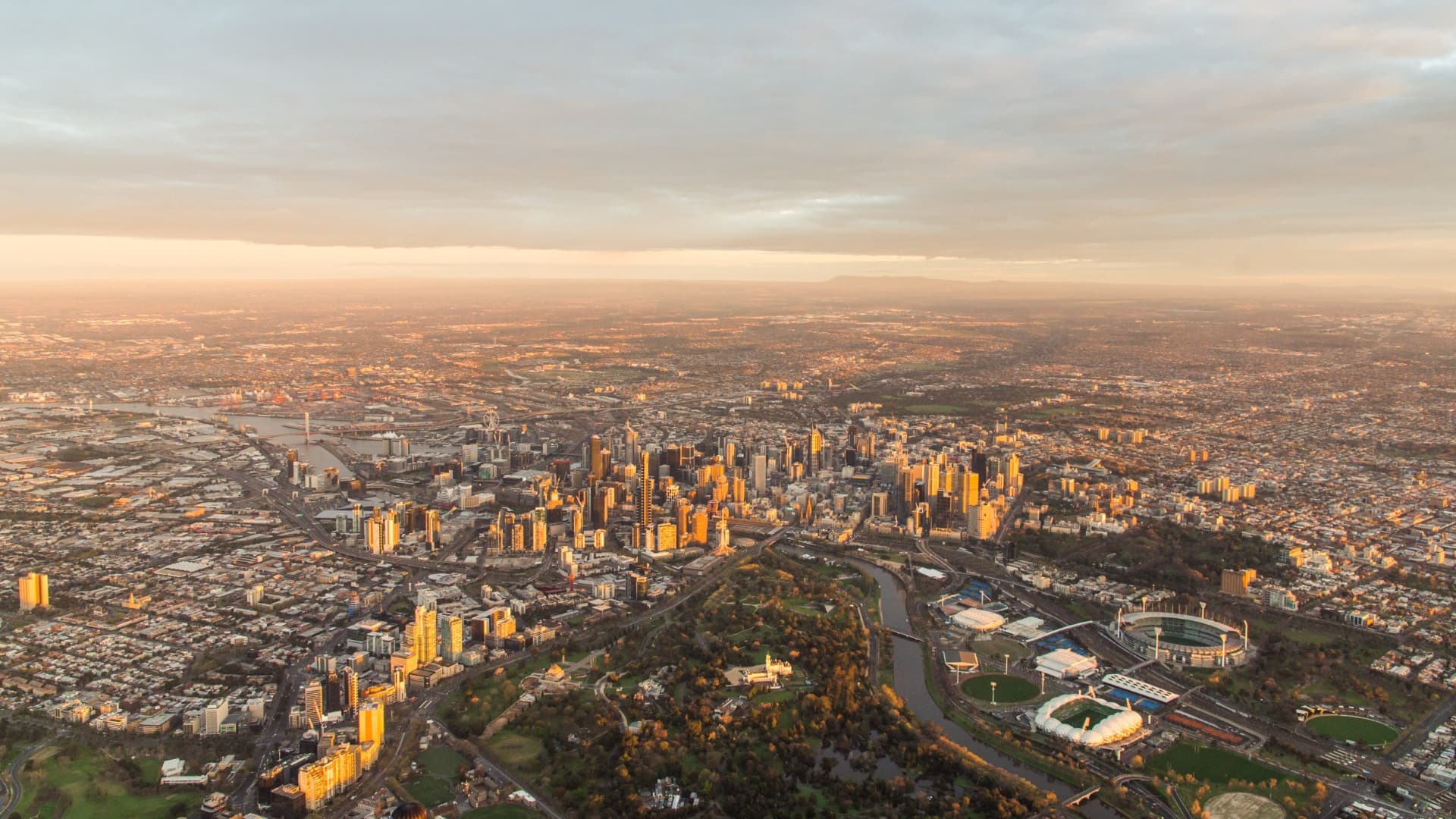BLOG
Migration out of Sydney and Melbourne continues in the September quarter
Migration out of Sydney and Melbourne continues in the September quarter
The ABS has released a new quarter’s worth of migration data, giving further insight into how the pandemic is affecting migration patterns around Australia. In today’s blog, Glenn summarises the latest findings, and takes a closer look at Sydney’s changing migration story.
The latest release of the preliminary quarterly interstate and city migration numbers by the ABS shows a continued movement out of capital cities into regional areas, and a movement from other states into Queensland. These trends were already quite evident in the June quarter 2020 figures and these new figures show the trends continuing into the September 2020.
Interstate Migration
At the state level, we can see in the September Quarter 2020 – which was the peak of Victoria’s lockdown – exodus from Victoria continued and increased, reversing the trend from just a year ago. The main recipient of these movers out of Victoria was Queensland, which gained 7,237 people from interstate in one quarter. If that rate were to continue it would equate to +30,000 people in net terms in a year. New South Wales maintained a similar interstate loss to one year ago, while Western Australia also shows a small interstate gain, for the first time in about 6 years.
Quarterly net migration (arrivals-departures) by state, September Quarter 2020
| September 2019 quarter | June 2020 quarter | September 2020 quarter | |
|---|---|---|---|
| NSW | -4,609 | -3,955 | -4,110 |
| Vic. | 2,030 | -3,042 | -3,749 |
| Qld | 5,470 | 6,750 | 7,237 |
| SA | -992 | 104 | 77 |
| WA | -946 | -227 | 631 |
| Tas. | 138 | 387 | 180 |
| NT | -669 | -260 | -131 |
| ACT | -422 | 243 | -135 |
Source: ABS, Regional Internal Migration Estimates, provisional
Capital City Migration
At a capital city level, there are large losses – between 7,000 and 8,000 people per quarter from Sydney and Melbourne – consistent over the last 3 months. Sydney’s losses increased while Melbourne’s were a little less, but Sydney’s is broadly consistent with the previous year whereas Melbourne’s has fallen dramatically.
But both capital cities are losing population to Queensland and to regional areas within NSW and Victoria.
Quarterly net migration (arrivals-departures) by capital city region, September Quarter 2020
| Greater Capital City | September 2019 quarter | June 2020 quarter | September 2020 quarter |
|---|---|---|---|
| Sydney | -6,215 | -6,378 | -7,782 |
| Melbourne | -985 | -7,994 | -7,445 |
| Brisbane | 3,687 | 3,189 | 3,215 |
| Adelaide | -1,093 | -181 | -334 |
| Perth | 165 | 408 | 1,388 |
| Hobart | -185 | -42 | -162 |
| Darwin | -583 | -202 | 8 |
| Canberra | -422 | 243 | -135 |
| Total | -5,631 | -10,957 | -11,247 |
Overall, our state capitals lost over 11,000 people to other parts of Australia over a quarter, but that represented about 14,000 from Sydney and Melbourne, while the aggregate of the other capitals was a net gain – particularly Brisbane and Perth. So treating all our capital cities as a single group in this way hides a lot of detail.
Almost 5,000 of Melbourne’s population in net terms went to regional Victoria, similar to the previous quarter. The remainder largely went to Brisbane and the rest of Queensland. Movement between Melbourne and Sydney was about even, with around 2,400 people moving each way, for a net movement close to zero.
Migration out of Sydney
Last quarter we looked closely at Greater Melbourne’s migration. This time it’s Sydney’s turn. Here are the net movements for Greater Sydney in the September quarter.
| Greater Sydney migration | |||
|---|---|---|---|
| September quarter 2020 | Departures | Arrivals | Net migration to Greater Sydney |
| Rest of NSW | 10,904 | 6,198 | -4,706 |
| Greater Melbourne | 2,370 | 2,409 | +39 |
| Rest of Vic. | 423 | 388 | -35 |
| Greater Brisbane | 2,314 | 1,310 | -1,004 |
| Rest of Qld | 2,921 | 1,397 | -1,524 |
| Greater Adelaide | 675 | 638 | -37 |
| Rest of SA | 99 | 77 | -22 |
| Greater Perth | 967 | 844 | -123 |
| Rest of WA | 109 | 92 | -17 |
| Greater Hobart | 182 | 160 | -22 |
| Rest of Tas. | 165 | 102 | -63 |
| Greater Darwin | 184 | 197 | +13 |
| Rest of NT | 59 | 32 | -27 |
| Australian Capital Territory | 1,044 | 790 | -254 |
| Total rest of Australia | 22,416 | 14,634 | -7,782 |
There is a very clear and strong trend of migration out of Sydney into regional NSW. The Blue Mountains and Central Coast are part of Sydney, so this movement is beyond these areas. The regional NSW movement has been happening since before COVID-19, but the trend has accelerated during the pandemic. This quarterly rate represents about 20,000 people per annum moving to regional NSW from Sydney if the trend continues a whole year. Additionally about 2,500 people per quarter (10,000 p.a.) are moving to Queensland, with only minor trends to other states and regions.
If this trend continues for a year, that’s a net loss of over 30,000 people from Sydney to elsewhere in Australia. It has been running at around 20,000 p.a. for many years, but appears to have accelerated. Despite this movement outwards, Sydney’s population has been growing in previous years (at around 80,000-100,000 p.a.), driven by large overseas migration. The overseas migration has virtually ceased since March 2020. With natural increase (births minus deaths) in Sydney sitting at about 38,000 p.a. there is a very real chance that the next year could see negative population growth in Australia’s largest city. Even if not negative, it will be a very small amount of growth indeed, compared to what we are used to.
The next important release is Local Government Area population data for the year ended June 2020. This is slated for March 30th, and will be loaded into the .id toolkits soon after. This release also contains migration updates at a local area level – so you can see where people are moving to and from in your area. We plan to bring this updated dataset to Community Profile (profile.id) shortly.
Glenn Capuano - Census Expert
Glenn is our resident Census expert. After ten years working at the ABS, Glenn's deep knowledge of the Census has been a crucial input in the development of our community profiles. These tools help everyday people uncover the rich and important stories about our communities that are often hidden deep in the Census data. Glenn is also our most prolific blogger - if you're reading this, you've just finished reading one of his blogs. Take a quick look at the front page of our blog and you'll no doubt find more of Glenn's latest work. As a client manager, Glenn travels the country giving sought-after briefings to councils and communities (these are also great opportunities for Glenn to tend to his rankings in Geolocation games such as Munzee and Geocaching).









